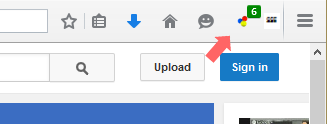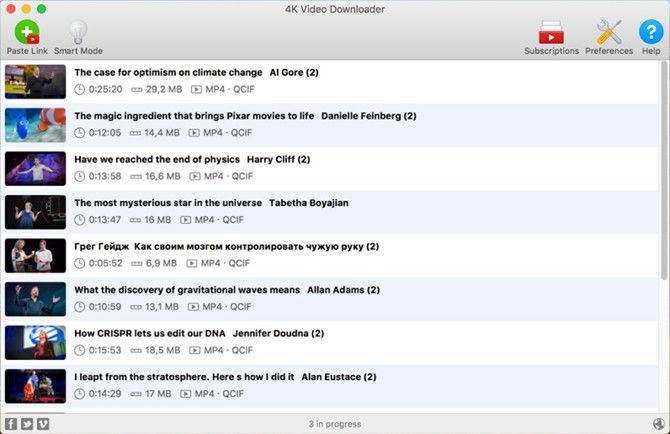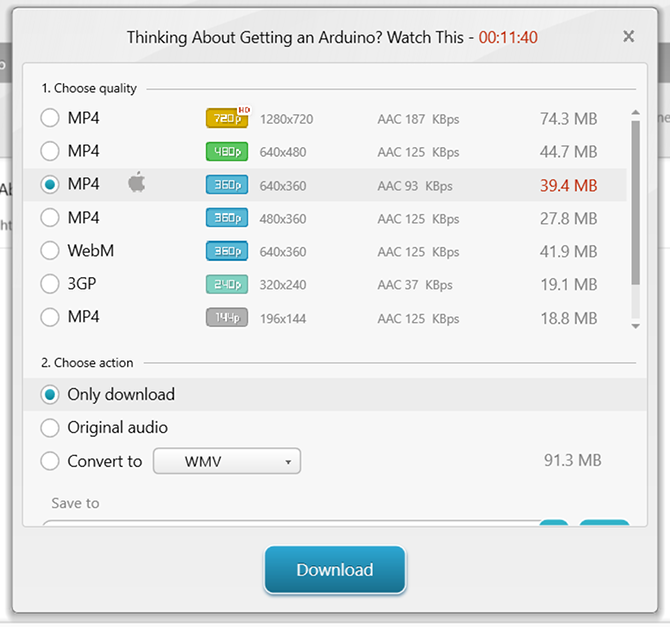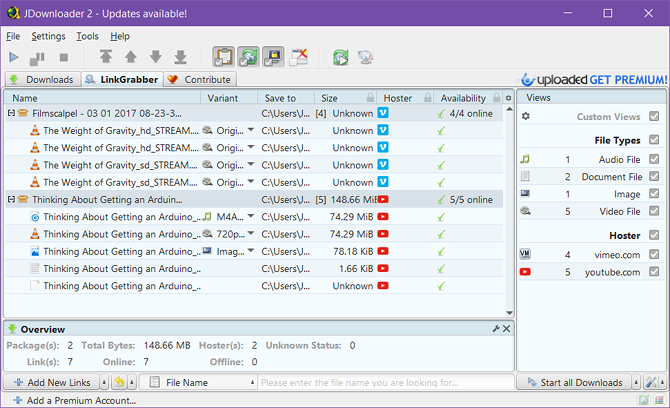
Most of today’s internet traffic is spent streaming online video, with YouTube taking up a massive chunk. Over 400 hours of video content is uploaded to YouTube every minute, and YouTube has greater reach in the 18-49 demographic than even cable TV.
And then you have to consider other video streaming sites like Vimeo, Dailymotion, Metacafe, Twitch, etc. That’s a lot of data flowing around—and if your ISP caps your monthly data allowance, then all this video streaming can be expensive.
The solution is to capture or download online videos to watch offline, allowing you to re-watch as many times as you want without wasting data. Here are some of the best tools for capturing and downloading streaming video so you can watch them offline.
1. Video DownloadHelper

Available on: Chrome, Firefox.
Supported sites: YouTube, Facebook, Instagram, Vimeo, Dailymotion, Lynda, Twitter, Udemy, and hundreds of other sites.
Video DownloadHelper is easily one of the most useful browser extensions you’ll ever install. It’s even simpler to use than the above-mentioned VideoGrabby, but the downside (sort of) is that you have to install it on your browser. But if you download a lot of videos on a day-to-day basis, Video DownloadHelper is definitely worth it!
The extension adds a button next to your browser’s address bar. Whenever you come across an online video, just click the button to download any video on the current page.
2. 4K Video Downloader

Available on: Windows, Mac, Linux.
Supported sites: YouTube, Facebook, Vimeo, Flickr, Dailymotion, and several other sites.
4K Video Downloader is the simplest and most straightforward tool. We recommend it if you want a no-hassle option that requires a close to zero effort on your part.
Just copy the URL of an online video and paste it into 4K Video Downloader. You can paste links to YouTube playlists or YouTube channels to download every video available, and you can even subscribe to YouTube channels and auto-download new videos as they’re made available. You can also download the annotations and subtitles in YouTube videos.
Video downloads are available in 8K, 4K, 1080p, or 720p as long as the source video was uploaded at that resolution, of course. Videos can be downloaded in MP4, MKV, and FLV formats. Or you can download only the audio portion in MP3 or M4A formats. (What’s the difference between MP3 and MP4?)
3. Freemake Video Downloader

Available on: Windows.
Supported sites: YouTube, Facebook, Liveleak, Veoh, Vimeo, Dailymotion, and dozens of other sites.
Freemake Video Downloader is one of the most popular video downloading tools out there. It’s completely free, easy to use, and relatively flexible as far as quality and format options are concerned. The one big downside is that it’s only available on Windows.
Videos can be downloaded in a handful of formats, including AVI, FLV, MKV, MP4, and WMV. Videos can also be downloaded in MP3 format if you only want the audio portion. The actual process only requires the URL of the video—just copy and paste it in.
4. JDownloader

Available on: Windows, Mac, Linux.
Supported sites: Nearly any site with streaming video.
JDownloader is like Freemake Video Downloader but with a twist. You take the URL of any page that has a streamed video on it, paste it into the app, and it will scan the page for all the videos it can detect. You get to pick which of the detected videos you want to download.
The nice thing about JDownloader is that you don’t need the direct URL of a specific video. Take a MakeUseOf article with five embedded videos, for example, and all them will be detected. This makes it very easy to capture several different videos at once.
Bundleware warning!
When you run the installer, you’ll come across a page that offers to install “Bing Search” or something else. On this page, the buttons will change to Decline and Accept. Make sure you click Decline! This will prevent bundleware from being installed on your system.
5. youtube-dl
Available on: Windows, Mac, Linux.
Supported sites: YouTube, Facebook, HBO, Metacafe, Vimeo, Dailymotion, and thousands of other sites.
youtube-dl is a tool for advanced users who are comfortable using the command line. If you prefer graphical interfaces, save yourself the headache and just use one of the ones listed above.
But if you’re okay with command line utilities, then youtube-dl offers the most flexibility of any video downloading tool. It’s complicated enough to have a non-trivial learning curve though, so prepare to read the documentation or else you’ll be lost.
You could also try youtube-dl-gui, which is an unofficial front-end user interface that’s available for Windows and Linux.
Features include several video selection and quality parameters, playlist processing, download rate limit, batch video downloading, automatic naming of files, inclusion of ads (currently experimental), and downloading subtitles (for sites like YouTube).
The following formats are supported: 3GP, AAC, FLV, M4A, MP3, MP4, OGG, WAV, and WEBM.
A Last Resort for Capturing Online Videos
If you encounter a video that isn’t supported by any of the above tools, the last resort is to play the video in fullscreen mode and record your screen as it plays. It’s not a perfect solution, but it works when nothing else does.
Check out our favorite screen recorder apps to get started. If you can get the direct URL of an online video, you can also use VLC to play and record online videos as a kind of streaming video recorder.
Read the full article: 5 Tools to Download or Capture Streaming Video From Any Website
Read Full Article
No comments:
Post a Comment